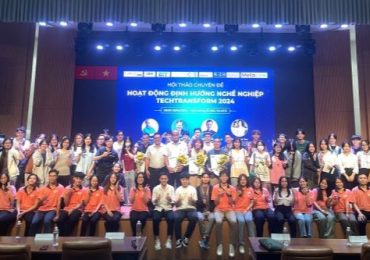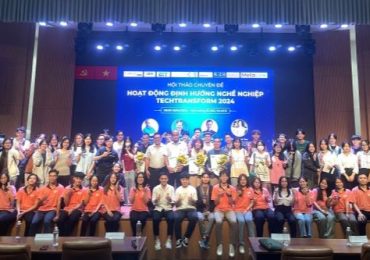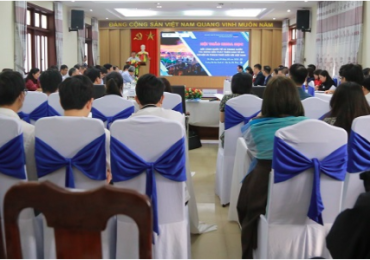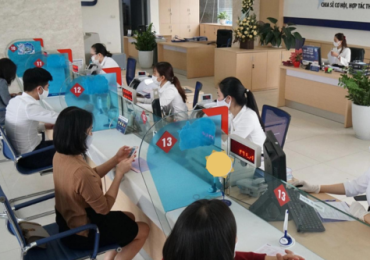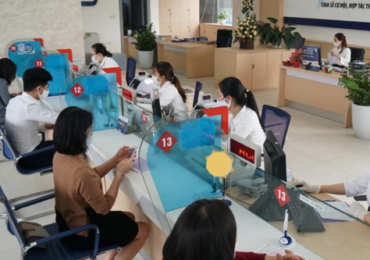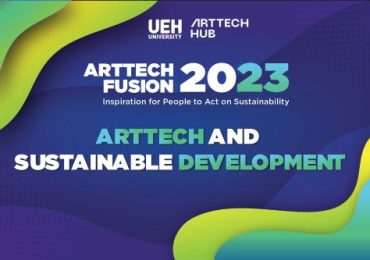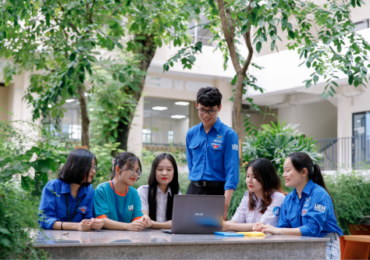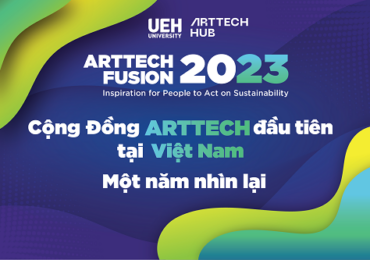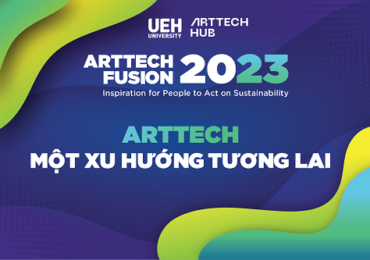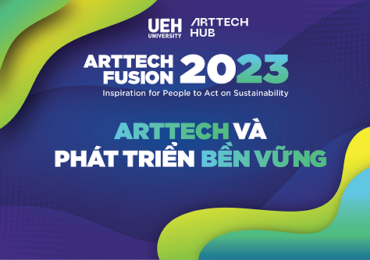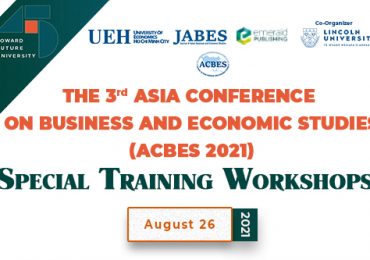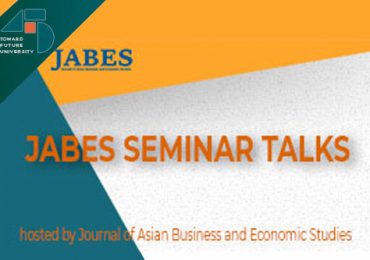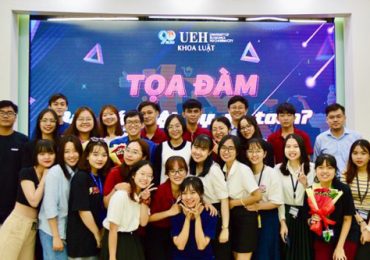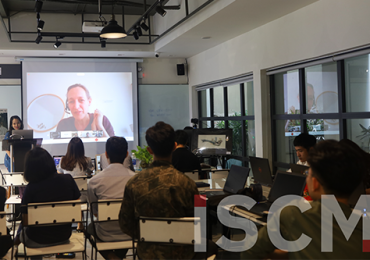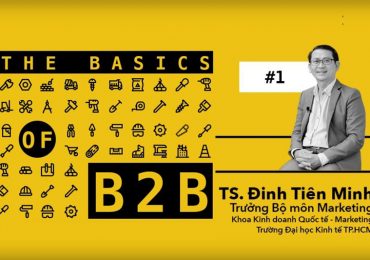Promoting Learner Autonomy in English Language Learning (Part 2)
28 Tháng Mười Một, 2023
The idea of student autonomy has gained significant traction in the modern era with the introduction of eLearning on LMS, particularly during the Covid-19 pandemic when educational institutions must switch to online learning. The development of learner autonomy strategies would be beneficial in an EFL environment like Vietnam where students depend heavily on teachers.

Keywords: learner autonomy, student-centered learning, autonomous learning
Learner autonomy (LA) plays a vital part in learners’ success. Today’s era entails learners being more autonomous in their study. Researchers and educators have done a lot of research in the field of LA and how to promoting LA. How about students’ viewpoints on LA, particularly in their English language learning, which has become ever more progressive in the era 4.0? What elements do students consider important in enhancing their autonomy in English language learning?
Recommendations for promoting LA
The findings revealed that the students needed the teacher’s attention in nine key aspects in order to promote learner autonomy. The nine key aspects consist of learning activities; learning resources; empowerment in content selection and assessment; goal setting; interest attraction; teachers’ support, counsel and encouragement; teacher-student and student-student relationships; reflection; and technological involvement.
Learning activities
Students enjoy a wide range of learning activities such as projects, presentations, dramatization, interviews, challenges, and extracurricular sessions. Effective use of pair work and group work is necessary to complete these tasks. Moreover, the activities are expected to be meaningful and practical to their real life. The learning operation is not only about the language but also about the culture. Exam-oriented learning is also needed to take into account.
Learning resources
Thanks to the LMS, teachers can provide learning materials for students easily. Learning resources should be varied in format and content, for example, platforms, websites, videos, infographic, English films with subtitles. Material provision must accompany with instructions and keys.
Empowerment in content selection and assessment
Students desire to participate in choosing studying contents and have their words in the assessment methods. More empowerment may bring about more autonomy as learners become the decision-maker for their own study.
Goal setting
Teachers need to develop learners’ self-awareness, encourage students to set aims, make them aware of their objectives and help them achieve their goals. Goal-oriented students are more self-disciplined and hence more successful.
Interest attraction
Interest plays a crucial role in students’ devotion to learning. It provides an intrinsic motivation to boost learners to take charge of their learning. It can be promoted with good teaching methods. Games offer good service and have never lost their appeal to students. A supportive, friendly learning environment with lots of interactive activities is vital for learning process. Importantly, the teacher should attempt to create an atmosphere in which the learners could feel more responsible for their own learning.
Teachers’ support, counsel and encouragement
There are types of learners who require more guidance than others, and there are times when learners need more assistance than normal and there are tasks in which learners will rely more on the teacher than usual. The concept of teacher-guided autonomy has been regarded in previous studies mentioned in the literature review. Learners need teacher’s constant support to promote autonomy effectively. Teachers must provide enough guidance and support that can propel them to new levels of effort and achievement and reach their greatest potential.
Students also need teacher’s counsel on learning methods, learning routes, as well as learning strategies. In addition, teachers need to instruct students on effective group work. Furthermore, teachers should often encourage and give compliments and positive comments to motivate students in their study. Offering bonus marks is an effective tool for motivating students to work harder.
Teacher-student and student-student relationships
Students expect a closer relationship and more communication with teachers. A closer relationship and more communication enable more understanding, which beneficial in promoting learner autonomy. Furthermore, teachers need to pay attention to fostering the relatedness among students since it is interdependent and has a significant impact on learning process. Good companions are catalysts and stimulants for the learning process. Good teacher-student and student-student relationships provide positive learning atmosphere.
Reflection
Reflection process can take place on an everyday basis or after completing a challenge. Blog writing to reflect the learning process and achievements should be encouraged to keep track of the progress, as it is easy for students to get distracted.
Technological involvement
As Brown (2006) noted, today’s students interact with the world differently than previous generations did, preferring to satisfy their curiosity digitally and largely online. Thus, it is crucial that educators in the 21st century incorporate technology into their instruction so as to encourage students to be autonomous in their learning process.
Conclusion
The new era has emphasized the role of autonomous learning as part of the requirement for the 21st century. Educators need to design learning in the way that can engage learners, raise their interest and develop awareness of autonomy. Students need the teacher’ adequate support to fully reach their potential in improving their autonomy.
Please refer to the full paper “Promoting Learner Autonomy in English Language Learning” HERE.
Author: Le Thi Tuyet Minh, University of Economics Ho Chi Minh City (UEH)
This is an article in the series of articles spreading research and applied knowledge from UEH with the “Research Contribution For All – Nghiên Cứu Vì Cộng Đồng” message, UEH cordially invites dear readers to look forward to the upcoming Knowledge Newsletter ECONOMY No. #101.

News & photos: Author, UEH Department of Marketing & Communication
[podcast] Phản Ứng Của Chính Sách Xã Hội Đối Với Đại Dịch Covid-19 Ở Một Số Quốc Gia (Kỳ 1)
8 Tháng Mười Hai, 2023
[Podcast] Ngoại giao kinh tế Việt Nam trong thời kỳ đổi mới và hội nhập quốc tế
10 Tháng Mười Một, 2023
ArtTech and sustainable development
27 Tháng Mười, 2023
Cộng đồng ArtTech đầu tiên tại Việt Nam – Một năm nhìn lại
9 Tháng Mười, 2023
ArtTech – Một xu hướng tương lai
5 Tháng Mười, 2023
ArtTech và phát triển bền vững
3 Tháng Mười, 2023
[Podcast] Máy Tính Và Công Nghệ “Không Đi Một Mình” – Phần 4
24 Tháng Bảy, 2023
[Podcast] Tác Động Của Đồng Tiền Kỹ Thuật Số Đến Tỷ Giá Hối Đoái
14 Tháng Mười Một, 2022
[Podcast] Chuyển Đổi Số Trong Ngành Du Lịch Việt Nam
5 Tháng Năm, 2022
[Podcast] Chuyển Đổi Số Trong Lĩnh Vực Y Tế Ở Việt Nam
25 Tháng Ba, 2022
[Podcast] Phân Tích Dữ Liệu Con Người Tại Việt Nam
18 Tháng Ba, 2022
[Podcast] Chuyển Đổi Số Trong Nông Nghiệp Ở Việt Nam
11 Tháng Ba, 2022
[Podcast] Mô Hình Kinh Tế Chia sẻ: Các Vấn Đề Quản Lý Ở Việt Nam
21 Tháng Một, 2022
[Podcast] Nâng Cao Trải Nghiệm Khách Hàng Trực Tuyến Trong Ngành Du Lịch
15 Tháng Một, 2022
[Podcast] Chính Sách Lao Động Việc Làm Cho TP. HCM Trong Giai Đoạn Sau Giãn Cách
28 Tháng Mười Hai, 2021
[Podcast] Xây Dựng Thị Trường Chứng Khoán Phi Tập Trung Dựa Trên Công Nghệ Blockchain
24 Tháng Mười Hai, 2021
[Podcast] Học Tập Suốt Đời Trong Thế Giới Số: Góc Nhìn Từ Nghề Nghiệp Kế Toán, Kiểm toán
21 Tháng Mười Hai, 2021
[Podcast] Học Tập Suốt Đời Tại UEH: Hướng Đến Đại Học Bền Vững
14 Tháng Mười Hai, 2021
[Podcast] Xu Hướng Kinh Doanh Bán Lẻ Trực Tuyến Thời Kỳ Covid
10 Tháng Mười Hai, 2021
[Podcast] Big Data Cho Mục Tiêu Phát Triển Bền Vững: Kinh Nghiệm Quốc Tế
7 Tháng Mười Hai, 2021
[Podcast] Cải Cách Luật Đất Đai Để Thúc Đẩy Phát Triển Kinh Tế
2 Tháng Mười Hai, 2021
[Podcast] Cuộc Cách Mạng Trong Kinh Tế Học Thực Nghiệm
30 Tháng Mười Một, 2021
[Podcast] Chỉ Số Giá Tiêu Dùng Từ Góc Nhìn Khai Thác Dữ Liệu Lớn (Big Data)
17 Tháng Mười Một, 2021
[Podcast] Toàn Cảnh Tiền Tệ Kỹ Thuật Số – Phần 5 : Tiền Ổn Định Tư Nhân Diem
5 Tháng Mười Một, 2021
Đứt gãy chuỗi cung ứng vùng trọng điểm phía Nam: 8 giải pháp
20 Tháng Mười, 2021
[Podcast]Toàn Cảnh Tiền Tệ Kỹ Thuật Số – Phần 2: Những Cột Mốc Phát Triển
19 Tháng Mười, 2021
[Podcast] Toàn cảnh tiền tệ kỹ thuật số – Phần 1: Xu thế của thời đại
15 Tháng Mười, 2021
NGÂN HÀNG BẮT TAY FINTECH (Phần 3): Các Giải Pháp Hỗ Trợ
8 Tháng Mười, 2021
UEH chủ trì thành công Hội thảo ICBF 2021
7 Tháng Mười, 2021
GRSD 2021- Hội thảo khoa học “Tăng trưởng xanh và phát triển bền vững”
6 Tháng Mười, 2021
NGÂN HÀNG BẮT TAY FINTECH (phần 2): Chọn đối tác theo tiêu chí nào?
4 Tháng Mười, 2021
‘Đổi mới giáo dục nghề nghiệp là động cơ tăng trưởng kinh tế’
30 Tháng Chín, 2021
Giải pháp “mở cửa” an toàn với các khu công nghiệp tại TP Hồ Chí Minh
27 Tháng Chín, 2021
Khi cuộc sống “bình thường mới”, nơi ở cho người lao động cần được quan tâm
9 Tháng Chín, 2021
Hướng phát triển mô hình đào tạo luân phiên (Dual Education) tại Việt Nam
6 Tháng Chín, 2021
Webinar: Tương lai ngành Thẩm định giá trong thập niên mới
17 Tháng Tám, 2021
Hãy là người dùng thông minh khi đón nhận và chia sẻ thông tin
9 Tháng Tám, 2021
Webinar: An toàn thông tin kế toán trong kỷ nguyên số
3 Tháng Tám, 2021
Có nên đưa lãi suất tiền gửi VND về 0 phần trăm?
20 Tháng Bảy, 2021
Chu kỳ giảm giá của đồng USD?
TS. Đinh Thị Thu Hồng và nhóm nghiên cứu
26 Tháng Sáu, 2021
Việt Nam cần kịch bản cho thương mại tương lai
ThS. Tô Công Nguyên Bảo
26 Tháng Sáu, 2021
Hệ thống tiền tệ tiếp theo như thế nào?
TS. Lê Đạt Chí và nhóm nghiên cứu
26 Tháng Sáu, 2021
Chuyển đổi số trong trường đại học: Dạy học trực tuyến sẽ trở thành xu hướng tất yếu
GS.TS. Nguyễn Trọng Hoài
26 Tháng Sáu, 2021
Tiền số ngân hàng Trung ương – Vận hành và thử nghiệm
Châu Văn Thành
26 Tháng Sáu, 2021
Chuyển đổi số trong khu vực công tại Việt Nam
Khoa Quản lý nhà nước
26 Tháng Sáu, 2021
“Cấp cứu” doanh nghiệp trước làn sóng COVID-19 thứ 4
23 Tháng Sáu, 2021
Chuyên gia UEH: Việt Nam nên kết hợp tiêm vaccine miễn phí và dịch vụ
23 Tháng Sáu, 2021
Hội thảo khoa học về Thị trường bảo hiểm Việt Nam (Conference on Vietnam’s Insurance Industry – CVII)
Khoa Toán – Thống Kê
7 Tháng Sáu, 2021
Muốn có trung tâm tài chính phải có chiến lược thích ứng
Khoa Tài chính
5 Tháng Sáu, 2021
Bảo vệ thông tin cá nhân trong thời kỳ chuyển đổi số dưới góc nhìn pháp luật
Khoa Luật
5 Tháng Sáu, 2021
Cần đưa giao dịch công nghệ lên sàn chứng khoán
Bộ Khoa học và Công nghệ
5 Tháng Sáu, 2021
Sự hữu ích của Lý thuyết trò chơi: Thảo luận về giải Nobel Kinh tế năm 2020
JABES
5 Tháng Sáu, 2021
Đoán định tư pháp: Xu thế mới trong hành nghề Luật
Khoa Luật
5 Tháng Sáu, 2021
Thiết kế đô thị: tầm nhìn vững chắc cho đô thị bền vững
Viện Đô thị thông minh và Quản lý
5 Tháng Sáu, 2021
Phục hồi du lịch và nỗ lực thoát khỏi vòng xoáy ảnh hưởng bởi Covid-19
Viện Đô thị thông minh và Quản lý
5 Tháng Sáu, 2021
Nghiên cứu Kinh tế học lao động trong sự biến động của thế giới
JABES
5 Tháng Sáu, 2021
Kết hợp Nghệ thuật và Công nghệ hướng đến Thành phố thông minh đáng sống
Viện Đô thị thông minh và Quản lý
5 Tháng Sáu, 2021
Chuỗi bài “The Basics of B2B”: Thị trường việc làm rộng mở nhiều sinh viên chuyên ngành Marketing đang bỏ quên
TS. Đinh Tiên Minh
5 Tháng Sáu, 2021
Môi trường không phải để nhà đầu tư xài miễn phí!
TS. Phạm Khánh Nam
5 Tháng Sáu, 2021
2021 sẽ là năm khởi đầu của chu kỳ tăng trưởng mới
PGS.TS Nguyễn Khắc Quốc Bảo
5 Tháng Sáu, 2021
Quỹ vaccine sẽ khả thi khi có người dân đóng góp
Phạm Khánh Nam, Việt Dũng
5 Tháng Sáu, 2021
Kích thích kinh tế, gia tăng vận tốc dòng tiền
Quách Doanh Nghiệp
5 Tháng Sáu, 2021
Đi tìm chiến lược hậu Covid-19 cho doanh nghiệp bảo hiểm Việt Nam
PGS TS Nguyễn Khắc Quốc Bảo, ThS Lê Văn
5 Tháng Sáu, 2021
Insurtech – Cơ hội và thách thức cho Startup Việt
Ths. Lê Thị Hồng Hoa
5 Tháng Sáu, 2021
